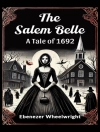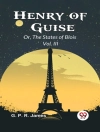In ‘Erb, ‘ W. Pett Ridge crafts a compelling narrative that navigates the intricacies of working-class life in early 20th-century Britain. This text is characterized by Ridge’s keen observational style and rich, vivid prose that immerses the reader in the daily struggles and triumphs of its eponymous protagonist. The novel captures the social dynamics of the time, exploring themes of ambition, poverty, and the indomitable human spirit, all told through a lens that blends realism with a touch of gentle humor. Ridge’s adept characterizations reveal the multifaceted nature of his characters, reflecting the societal pressures and aspirations that shape their lives. W. Pett Ridge, known for his deep affinity for the nuances of everyday life, often drew upon his own experiences in the working-class neighborhoods of London. His background as a journalist and writer from a middle-class family informed his ability to convey the challenges faced by the lower classes with authenticity and depth. Ridge’s own struggles and observations allowed him to create a narrative that resonates with readers seeking a deeper understanding of social identity and class dynamics. I highly recommend ‘Erb’ to anyone interested in the historical landscape of British literature and those who appreciate nuanced character-driven stories. Ridge’s empathetic and insightful portrayal invites readers to connect deeply with the struggles of his characters, making it a poignant exploration of resilience and aspiration that remains relevant today.
A propos de l’auteur
William Pett Ridge, more commonly known as W. Pett Ridge, was a prolific English author born on April 22, 1859, in Chartham, Kent. He established his career as a writer during the late Victorian and Edwardian periods. Ridge was well known for his humorous and satirical depiction of lower middle-class life in London, a characteristic that is evident in his works. ‘Erb’ is one of the novels that bring to life the London streets through vivid and comedic narratives, showcasing Ridge’s talent in capturing the essence of working-class culture within his text.
Pett Ridge published over forty novels and volumes of short stories during his career, among which ‘Mord Em’ly’ (1898) and ‘A Son of the State’ (1899) are noteworthy for their portrayal of London’s working-class society. He was not just a novelist, but also a playwright and essayist, contributing to periodicals. His literary style often featured a combination of sharp wit and gentle satire, a mix that endeared him to his readers while providing critical commentary on social issues of his day. Ridge passed away on October 7, 1930, but left behind a rich body of work that continues to offer a window into the quirks and conditions of early 20th-century England.












